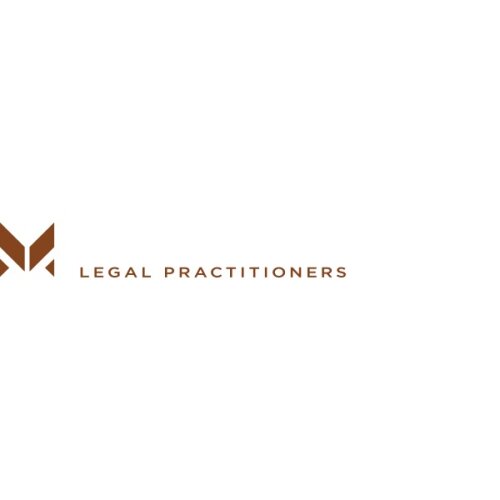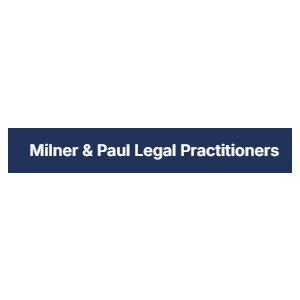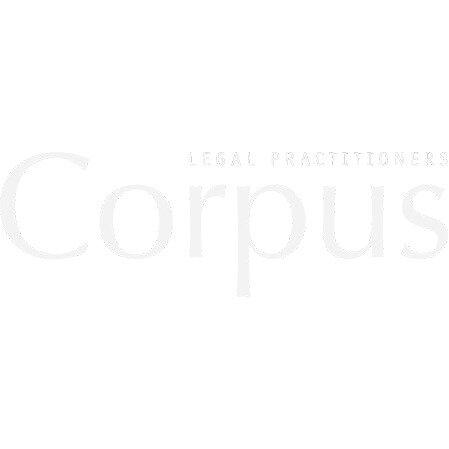Best Corporate Governance Lawyers in Zambia
Share your needs with us, get contacted by law firms.
Free. Takes 2 min.
Or refine your search by selecting a city:
List of the best lawyers in Zambia
About Corporate Governance Law in Zambia
Corporate governance in Zambia refers to the systems, principles, and processes by which companies and organizations are directed and controlled. It establishes a framework for attaining a company's objectives, involves balancing the interests of shareholders, management, customers, suppliers, financiers, government, and the community. The regulatory environment for corporate governance in Zambia has evolved over the years to promote transparency, accountability, and sound management practices across the business landscape. Laws and standards are set to support fair business conduct, responsible executive behavior, and the protection of stakeholder interests.
Why You May Need a Lawyer
There are several situations where legal assistance is important in matters of corporate governance in Zambia. These may include:
- Establishing a new company and ensuring compliance with corporate governance standards from the outset.
- Drafting or reviewing the company's constitution or shareholder agreements.
- Advising boards of directors on their legal duties and responsibilities.
- Resolving disputes between shareholders, or between shareholders and directors.
- Conducting due diligence for mergers, acquisitions, and other corporate restructuring.
- Compliance with mandatory reporting, disclosure obligations, and anti-corruption regulations.
- Addressing conflicts of interest or breaches of fiduciary duty by company executives.
- Guiding companies through investigations or audits related to corporate misconduct.
- Updating by-laws and governance frameworks to comply with changing laws in Zambia.
- Providing general counsel to help organizations implement best practices for governance and risk management.
Local Laws Overview
Zambia's corporate governance framework is shaped by various local laws and regulatory guidelines. The key legal instruments and regulations relevant to corporate governance include:
- Companies Act No. 10 of 2017: This is the primary piece of legislation governing the registration, operation, and regulation of companies in Zambia. It covers the formation of companies, duties of directors, shareholder rights, disclosure requirements, and procedures for meetings and resolutions.
- Zambia Institute of Chartered Accountants (ZICA) and Securities and Exchange Commission (SEC): These bodies issue codes and guidelines to ensure the adoption of international best practices in corporate governance, especially for public listed companies and financial institutions.
- Zambia Corporate Governance Code: Although not always mandatory, the adoption of this code is encouraged to help organizations build robust governance structures.
- Anti-Corruption Act No. 3 of 2012: This law outlines the responsibilities of corporations regarding ethical practices and the prevention of corrupt activities.
- Sector-specific regulations, such as those issued by the Bank of Zambia for financial institutions, demand higher standards of governance and oversight.
These laws and guidelines collectively ensure transparency, the equitable treatment of shareholders, performance of management, and overall corporate integrity in Zambia.
Frequently Asked Questions
What is corporate governance and why is it important in Zambia?
Corporate governance refers to the set of rules, practices, and processes used to direct and manage a company. It is important in Zambia because it ensures accountability and transparency within organizations, protects the interests of stakeholders, and promotes sustainable economic growth.
Who is responsible for corporate governance in a Zambian company?
The board of directors is primarily responsible for corporate governance in a Zambian company. They must act in the best interest of the company and ensure compliance with local laws and standards.
Are there specific rules for public and private companies?
Yes, public companies are subject to stricter governance and disclosure requirements, including those set by the Securities and Exchange Commission. Private companies have more flexibility but must still comply with the Companies Act and other relevant laws.
What are the primary duties of a director under Zambian law?
Directors in Zambia must act in good faith, avoid conflicts of interest, exercise reasonable care and skill, and always act in the best interests of the company as a whole.
What can shareholders do if they believe directors are acting improperly?
Shareholders may call meetings, propose resolutions, and in some cases, bring legal action against directors if their duties have been breached or if company assets are being misused.
Is the adoption of a formal corporate governance code mandatory in Zambia?
For listed companies, adherence to certain codes and guidelines is required. For many private companies, adoption is recommended but not legally mandatory.
How often must Zambian companies hold board meetings and annual general meetings?
Under the Companies Act, companies must hold an annual general meeting once every calendar year, and board meetings as stipulated by the company’s constitution or when needed to carry out business effectively.
What are the consequences of poor corporate governance?
Poor corporate governance can result in legal penalties, financial losses, damaged reputation, shareholder disputes, and in severe cases, the dissolution of the company.
Do foreign-owned or joint venture companies face different governance requirements?
All companies registered in Zambia must comply with Zambian laws. However, foreign-owned or joint venture companies may also need to consider additional regulatory requirements depending on their sector and shareholding structure.
Can companies be held liable for the actions of their directors in Zambia?
Yes, companies can be held liable for unlawful actions carried out by directors in their official capacity, especially if those actions breach the Companies Act or other statutory obligations.
Additional Resources
Here are some key resources and organizations that can provide further information and support regarding corporate governance in Zambia:
- Zambia Institute of Chartered Accountants (ZICA) - Provides professional advice and issues governance guidelines.
- Securities and Exchange Commission (SEC) Zambia - Regulates public companies and sets crucial corporate governance standards.
- Patents and Companies Registration Agency (PACRA) - Responsible for the registration and regulation of companies in Zambia.
- Bank of Zambia - Issues guidance for financial institutions on governance and compliance matters.
- Law Association of Zambia - Can assist with finding licensed legal practitioners with expertise in corporate governance.
Next Steps
If you believe you need legal assistance in corporate governance matters in Zambia, consider the following steps:
- Identify your specific issue or area of concern, be it compliance, disputes, or setting up governance structures.
- Gather all relevant documents, such as your company's constitution, board resolutions, previous meeting minutes, and correspondence with stakeholders.
- Contact a licensed Zambian lawyer or law firm with expertise in corporate and commercial law.
- Schedule a consultation to discuss your legal needs, potential risks, and the way forward.
- Stay informed by following updates from regulatory authorities and seeking ongoing legal advice as necessary.
Adopting a proactive approach to corporate governance, including regular legal reviews and compliance audits, can help protect your company and foster long-term growth and stability.
Lawzana helps you find the best lawyers and law firms in Zambia through a curated and pre-screened list of qualified legal professionals. Our platform offers rankings and detailed profiles of attorneys and law firms, allowing you to compare based on practice areas, including Corporate Governance, experience, and client feedback.
Each profile includes a description of the firm's areas of practice, client reviews, team members and partners, year of establishment, spoken languages, office locations, contact information, social media presence, and any published articles or resources. Most firms on our platform speak English and are experienced in both local and international legal matters.
Get a quote from top-rated law firms in Zambia — quickly, securely, and without unnecessary hassle.
Disclaimer:
The information provided on this page is for general informational purposes only and does not constitute legal advice. While we strive to ensure the accuracy and relevance of the content, legal information may change over time, and interpretations of the law can vary. You should always consult with a qualified legal professional for advice specific to your situation.
We disclaim all liability for actions taken or not taken based on the content of this page. If you believe any information is incorrect or outdated, please contact us, and we will review and update it where appropriate.
Browse corporate governance law firms by city in Zambia
Refine your search by selecting a city.

















